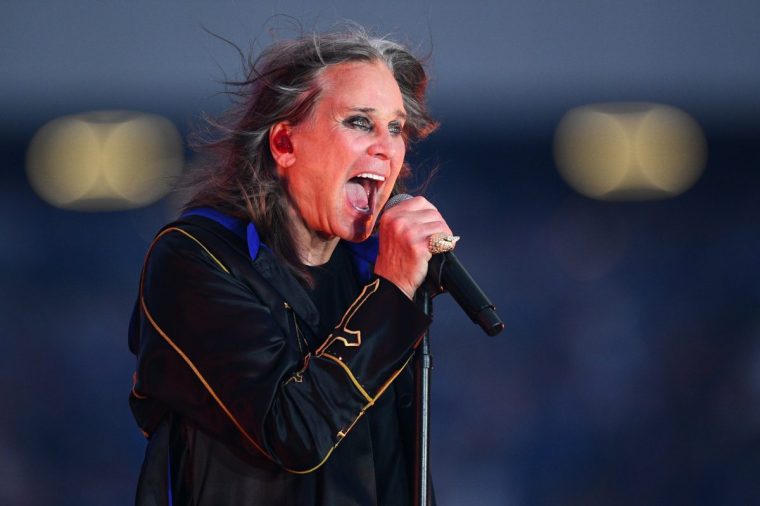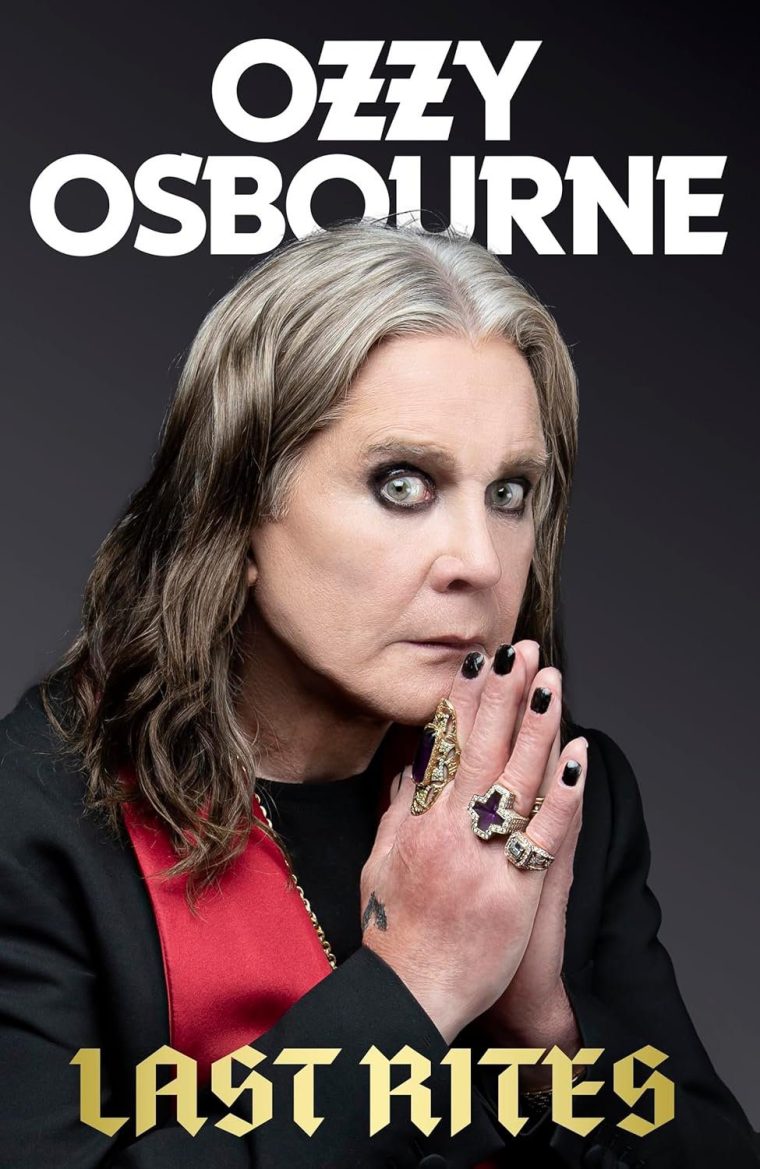This final memoir would have been a work of pathos, had Osbourne lived to torture himself by reading it
Poignantly, Ozzy Osbourne’s death in July occurred just 16 days after Back to the Beginning, the heavy-metal extravaganza and last ever Black Sabbath gig that sealed his national treasure status. Taking place in Villa Park, a stone’s throw from Osbourne’s childhood home, it tied the loose ends of a career that began in 1967; the 76-year-old’s near-instant demise following it was as poetic as his life had never been.
You wouldn’t know any of this from Last Rites, his third autobiography. Instead, the ending finds Osbourne marooned in his Buckinghamshire mansion, post what was always scheduled to be his final concert, but very much alive.
Osbourne reminisces about the Birmingham show, plots to meet up with Guns N’ Roses’ Axl Rose and ponders a new solo album. Oh, and he’s also mulling over his Parkinson’s disease, arrhythmia, blood-clotting, emphysema, 80 per cent blocked heart and near-absence of mobility against a backdrop of a body already ravaged by years of addiction to legal and illegal drugs, to alcohol, to sex and to apples.
“Not just any apples, mind you. None of that Granny Smiths bullshit. They had to be Pink Ladies. Some nights I was eating 12 of ’em. I hired a guy to buy them. I didn’t want ’em delivered in case I got brown ones or ones with dents in”.
Yet, what a man not known for such self-reflection contemplates most of all is what he knows is coming. “If I were to go to bed tonight and not get up tomorrow, no one would be surprised. Death’s been knocking at my door for the last six years louder and louder. At some point I’m gonna have to let him in.”

No matter how much Osbourne actually had to do with those ruminations days before he did answer death’s knock – the book is ghostwritten by Chris Ayres – it’s desperately moving. Skipping back a few weeks, to when Osbourne, wife Sharon, daughter Aimee, a nurse and a security guard fly to Birmingham, leaving Los Angeles for what would be Ozzy’s final time, there’s accidental prescience in the way they attempt to take their most valuable possessions with them until customs intervene.
There were suggestions that Sharon would write the foreword to Last Rites, but she has kept her powder dry, possibly for her own memoir. Perhaps that’s the best and cleanest option – not least since Last Rites features only Osbourne’s voice and not mentioning his passing somehow keeps the old rascal alive. But while Sharon may well have read the manuscript and bowdlerised accordingly, it’s hard not to feel that she and the louder members of his six children have missed a trick to directly shape this part of their narrative.
For all that it’s an update on 2011’s Trust Me, I’m Doctor Ozzy, this third autobiography covers some old ground. There’s the hardscrabble upbringing as one of six children saved from hunger by school dinners. There’s the biting a head off a dove in 1981 (“I was 36 hours into a 72-hour bender”) and there’s the biting the head off a bat a year later. “I thought it was from a joke shop… when I bit down on its neck I realised very quickly it wasn’t made of rubber”.
Most of all, though, there is the 1982 death of his guitarist Randy Rhoads and wardrobe mistress Rachel Youngblood in a plane crash after the pilot had taken cocaine. Osbourne appeared mostly untroubled by his own behaviour and its consequences, but this tragedy of which he was wholly innocent haunted him until his own end: “Not a day goes by when I don’t ask myself, why am I here not them?” The cheap, unnecessary deaths further fuelled a dissolute lifestyle that had already taken hold, adding a desperate undertow to Osbourne’s more outlandish, class-clown behaviour.
For all the readability and endearing tone of Last Rites, much of it is spent detailing Osbourne’s ailments in Grandpa Simpson fashion. A quad bike crash in 2003 had broken his neck, fractured eight ribs, punctured a lung and severed assorted arteries, but in 2019 he returned to the marital bed following early-hours urination, “feeling about as fresh as a gorilla’s arsehole”. He dived towards the bed, missed it and broke his neck once again. From there, after many surgeries, not all of them necessary, the end was beginning.

The most complex subject he ponders, though, is his relationship with Sharon. He needed a carer with an endless capacity for forgiveness. What she needed beyond a project is less clear. His admission to sex addiction is brief and vague and no names are revealed, not even Michelle Pugh, the “celebrity hair colourist” who claims to have been his mistress for four years.
Instead, he half-heartedly addresses how this shambling man-child and hard-nosed, ambitious woman stayed together. As Osbourne woozily recalls, their relationship began in 1980; two pass-out drunks coming together as shambolically as only pass-out drunks can.
For reasons he neglects to share, or never knew, Sharon went cold turkey with alcohol, instantly stopping drinking to start properly managing, in every sense. For their marriage on 4 July 1982 she was sober. He “was pissed out of my mind”.
Always with one eye on the business, she forgave the affairs; his laissez-faire parenting; his out-of-control bacchanalia and the attempt to murder her as she read a book at home. “I walked into the living room, completely calm and said something like ‘it’s clear you have to die’,” he writes, of the moment before he attempted strangulation. He shrugs that “love ain’t just about good sex…” but as he admits, “if there’s one person who deserves an apology, it’s Sharon.” Quite.
Overall, Last Rites is the last testament of one who had everything, from a man to buy his apples to, as he reveals with a little self-deprecation, a private elevator at home. He died reconciled with the Black Sabbath bandmates alongside whom he had risen from the back streets of Birmingham to global stadiums. He died at peace with his children and while Sharon was his second wife, their marriage had lasted until death did them part. He died, too, more loved than he had ever been, more loved than perhaps he deserved.
Last Rites would still have been a work of pathos were Osbourne alive and able to torture himself by reading it. The drink/drugs decades he barely remembers meant a life partly wasted for the love of getting wasted. And when Leonard Cohen sang “you don’t really care for music do you?” he could have been thinking of Osbourne, who didn’t even write the lyrics to “Paranoid”. He had seemingly no interests beyond shooting (“very therapeutic”) and a sort of friendship with King Charles (“we have a right old laugh”) and nothing to dispel a fundamental emptiness.
Ozzy Osbourne will be remembered with affection rather than reverence. But that’s fine. One thing Last Rites doesn’t mention is how he would like to be remembered. Probably because he didn’t care.
‘Last Rites’ by Ozzy Osbourne is published by Sphere (£25)
